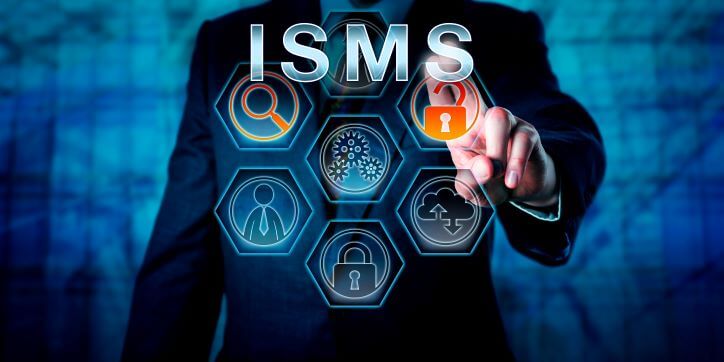Information security is a major concern for many companies and organisations. Implementing ISO 27001 can improve company resilience against cyber threats. ISO 27001 is a set of guidelines to help organisations identify, manage, and improve their information security risks. Implementing the standard will help mitigate activities that may lead to data breaches, such as non-compliance with data privacy legislation or system outages caused by malware attacks. Regardless of size or industry, all companies should have the necessary safeguards in place to protect themselves from cyber threats.
Why Is ISO 27001 Important?
Implementing ISO 27001 is an important step for all companies. Protecting company data and information and understanding data-privacy legislation is not just a “nice to have” but an urgent need. It’s possible that you’re already aware of some of the benefits of implementing ISO 27001:
- Mitigation of risks associated with system outages or data breaches.
- More awareness of your organisation’s security practices and adherence to best practices.
- Increased customer loyalty and confidence in your brand.
- Reduction in operational costs such as legal fees, insurance premiums, and potential fines resulting from non-compliance with legislation.
How Does ISO 27001 Work?
ISO 27001 provides a standard to help organisations identify, manage, and improve risks in the areas of confidentiality, integrity, and availability. The standard provides guidelines on the protection of information assets connected with a company’s operations. It also includes requirements for how we can protect our data by using encryption or other protective measures. If a company implements ISO 27001, that company will have an effective security management system in place to protect it from cyber threats as well as external hazards that may cause physical damage.
What Is An ISMS?
An Information Security Management System (ISMS) is the framework that allows an organisation to effectively manage the risks of their information security. This framework will help your company identify, protect and secure its information assets against cyber threats while building trust and confidence with stakeholders. It’s a set of principles and controls that are intended to provide a high level of assurance that your systems and data are protected against cyber hazards, malicious or unintentional. The benefits can be significant, and by implementing ISO 27001, you’ll be able to demonstrate compliance with relevant regulations, control risk, reduce operational costs and improve customer satisfaction.
What Are The 3 ISMS Security Objectives?
A company’s Information Security Management System (ISMS) is a set of policies and procedures to protect the confidentiality, integrity, and availability of data. The three objectives that are needed to maintain these standards are:
- Confidentiality: Ensuring only authorised individuals can view the information.
- Integrity: Ensuring the information cannot be modified or deleted by any individual who does not have permission.
- Availability: Ensuring the information is accessible when needed.
Why Do You Need An ISMS?
An ISMS is a set of standards that help organisations to manage and mitigate their security risks. Cyber security is not just about defending your organisation from attacks; it also covers the creation of policies and procedures to handle data breaches, data privacy legislation, system outages caused by malware attacks, and much more. You need an ISMS because cyber threats are everywhere. The internet has created new avenues of attack for hackers who have made it their business to break into company servers and steal valuable data. This data can then be used in a variety of ways, like identity theft or extortion attempts. In order to protect your company’s information assets, as well as your customers, you need to implement ISO 27001.
What Are The Costs Of Setting Up ISO 27001?
Setting up a management system doesn’t have to be expensive. The costs of implementing ISO 27001 vary depending on the size and complexity of your business. A small company can often pay less for these services than a large company by using ISO 27001 templates to create their guideline themselves, although this can be a long process if you’re not using an expert. There are also other factors that can affect the cost of your ISO 27001 implementation.
These factors include how much time is required to implement, which parts of the ISO 27001 framework you want to adopt, and how many staff members are available to work on it. However, this doesn’t mean smaller companies should let their futures hang in the balance by not investing in cybersecurity measures. To get started with ISO 27001, check out High Table for their expert advice and ISO 27001 templates. This can help you to prove your security to your customers, giving them reassurance.
Conclusion
In today’s world, cybersecurity threats are an unavoidable reality. The survival of your business depends on your ability to stay secure. Unfortunately, many companies don’t have the necessary skills or knowledge to do so.
If you’re committed to creating a secure environment for your data, ISO 27001 is a proven way to do so. It helps protect your information from malicious attacks and can also increase trust in your company and save you money in the long run.
Implementing ISO 27001 is a long and complex process, but it’s well worth it for the peace of mind that comes with it. Your company’s future depends on it.


